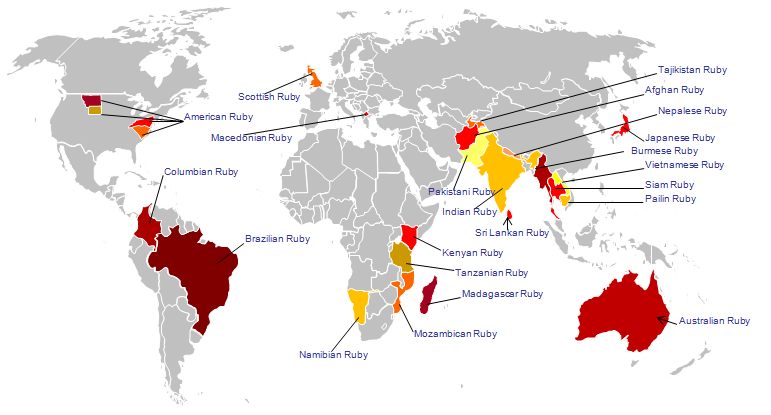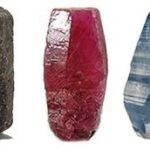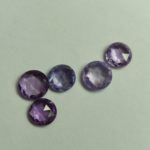Ruby from Different origins
If you are talking about love and vigor, ardor and power, then which color you would associate with it on impulse? It’s Red, isn’t it? We associate love with the color Red. It exudes warmth and a strong sense of vivacity. The interesting thing is that the color of Ruby is also red. Ruby is also called the king of gemstones.
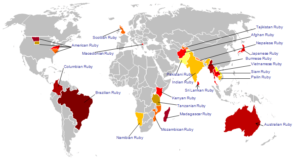
Ruby is the undisputed ruler of the gemstones in this enthralling world. Ruby has been considered as one of four most valuable gemstones on the Earth for thousands of years. Its glorious color, admirable hardness and exceptional brilliance make Ruby a precious gemstone. Because fine quality of Ruby is extremely rare, it’s an added advantage which makes it valuable.
The member of Corundum mineral family, Ruby is a pink or blood-red gemstone. The hardness of 9 on the Mohs scale of hardness keeps it stand among the hardest gemstones. Rubies are mined in different places and sometimes people confused that which Ruby is pure and more valuable. If its ostensible powers are now the matter of apocryphal folklore, Ruby today is still esteemed for its beauty and scarcity. A key aspect affecting the value of Ruby is the country of origin and in some cases the precise region from which the stone obtains.
We are mostly known for sapphires, but our factory cuts very small melee size fine round & square cut rubies for all sizes and mostly go out for client custom order, like these Mozambique cut rubies. The process of cutting Ruby is quite difficult, especially color matching, size matching, quality (clarity) matching and a perfect heating process that we have put lots of years of research and development into this Thai controlled process.
Here, you can check out the different weightsof rubies:
View this post on Instagram
Rubies have historically been mined in Thailand, Cambodia, Burma, India, Afghanistan, Pakistan, Sri Lanka, Tanzania, Madagascar, Vietnam, Nepal, Tajikistan, U.S. states of Montana, North Carolina, South Carolina, Wyoming, Greenland, Republic of Macedonia (is the only country in mainland Europe to have naturally occurring rubies), Macedonian ruby has a unique raspberry color, Waseges River area of Kenya and Mozambique.
The red of Ruby depends on the different origins. As we know that the Ruby is the member of Corundum family, the natural and pure Corundum is colorless. Some elements like iron, chrome, vanadium or titanium are responsible for its color. This is also a fact that only Red Corundum is entitled to be called Ruby.
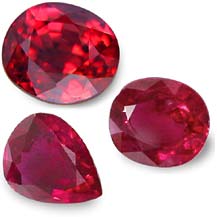
The Mogok valley in upper Burma (Myanmar) is the main source of Rubies in the world from centuries. Burmese Rubies are the most popular in the world because of their color. They are darker in the color which is known as “Pigeon Blood Red” color. These rubies are really really pricey and high end usually, still wondering why prices are so high for Ruby?
When you talk about the classical country of origin for Ruby, then India is the name which is regarded for a long time. You can find an affluent stock up of knowledge about gemstones in Indian literature. This knowledge has been stored over a period of more than two thousand years. Even the term “Corundum” is a derivative from the Sanskrit word ‘kuruvinda’. “Ratnaraj” is the Sanskrit word for Ruby. It means “king of the gemstones”, which is above all and it used to be prepare as a royal welcome. The ruler sent high personage out to welcome the precious gemstone in appropriate style, whenever a particularly Ruby crystal was found.
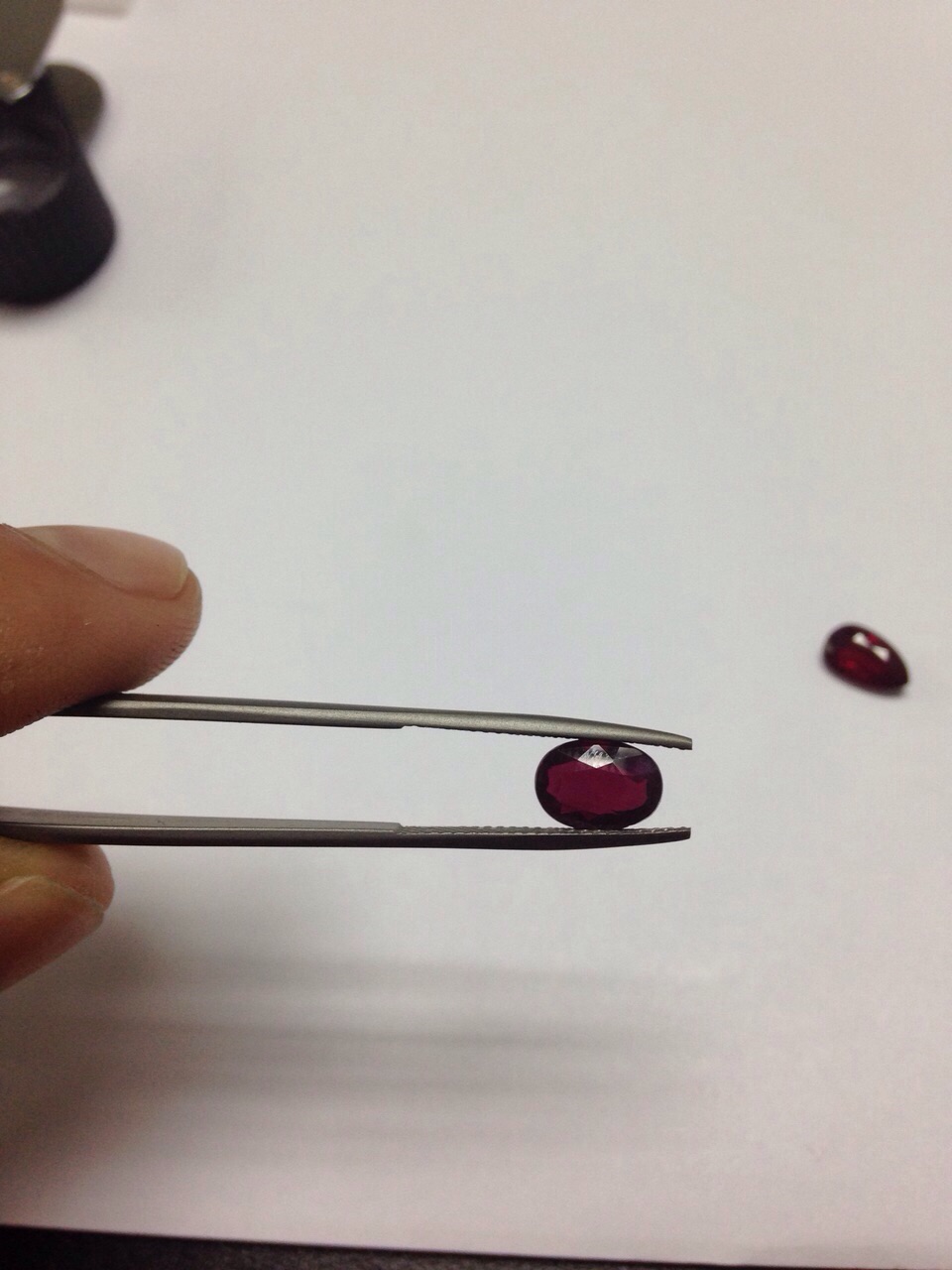
Mozambique Ruby is also known as Montepuez Ruby. Business quality rough Rubies from Montepuez are generally heated with borax or other flux-like additives, and since the cavities are healed before faceting, larger faceted stones result. Thus flux heated Mozambique rubies of larger sizes (commonly up to 10+ carats) are more readily available in the market than unheated rubies.
The physical properties of the 4 samples of Rubies from Mozambique:
The gemological properties of the samples are summarized in table 1. The refractive indices obtained varied between 1.761 to 1.763 for ne and 1.770 to 1.771 for no with a birefringence ranging between 0.008 and 0.009.
Table 1: Properties of Rubies showing R. I. and S. G. values, reaction through the Chelsea color filter and LWUV/SWUV reactions:
| Reference |
RI o-ray |
RI e-ray |
Birefringence |
Chelsea filter |
LWUV |
SWUV |
|
100305163907 |
1.770 |
1.761 |
0.009 |
Red |
Strong Red |
Weak |
|
100305163897 |
1.771 |
1.763 |
0.008 |
Red |
Medium to Strong Red |
Weak |
|
100305164174 |
1.770 |
1.761 |
0.009 |
Red |
Strong Red |
Weak |
|
100305163945 |
1.771 |
1.762 |
0.009 |
Red |
Weak to Medium Red |
None |
|
Reference |
Sample Category & Origin |
Wafer Weight (Carats) |
Polished Wafer Orientation |
Wafer Path Length |
Color (Transmitted Light) along C-axis |
|
100305164174 |
A1 – “Central” |
0.642 Carat |
Perpendicular to C- Axis |
2.648 mm |
Purplish Red |
|
100305163907 |
A2 – “Glass” |
0.133 Carat |
Perpendicular to C- Axis |
0.702 mm |
Pink |
|
100305163897 |
A2 – “Nova Mina”/”Maninge Nice” |
0.078 Carat |
Perpendicular to C- Axis |
0.590 mm |
Purplish Pink |
|
100305163945 |
B2 – “Torro” |
0.066 Carats |
Perpendicular and Parallel to C-Axis |
0.510 mm |
Brownish Pink |
Conclusion: Difference between Mogok Ruby, Ruby from India and Mozambique Ruby:
Passionate pinkish Red Rubies are mined in Burma, which are almost electric in color. Most of the Rubies from Burma have a burly fluorescence when exposed to ultraviolet rays like those in sunlight. In India, the Ruby deposits occur in metamorphosed limestone (marble). Rubies from Mozambique are semi-translucent, which can be illustrated as subhedral Ruby crystal snuggled in a milieu of white calcite/dolomite marble, dotted with pseudo-hexagonal books of muscovite. They are very strongly fluorescent displaying bright red with LWUV, and weaker red with SWUV.
I hope you would like to watch the following video in which you can see the Ruby Crystal from India. Moreover, if you are interested in Ruby from different origins, then its very important to understand the difference between ruby and pink sapphire.
